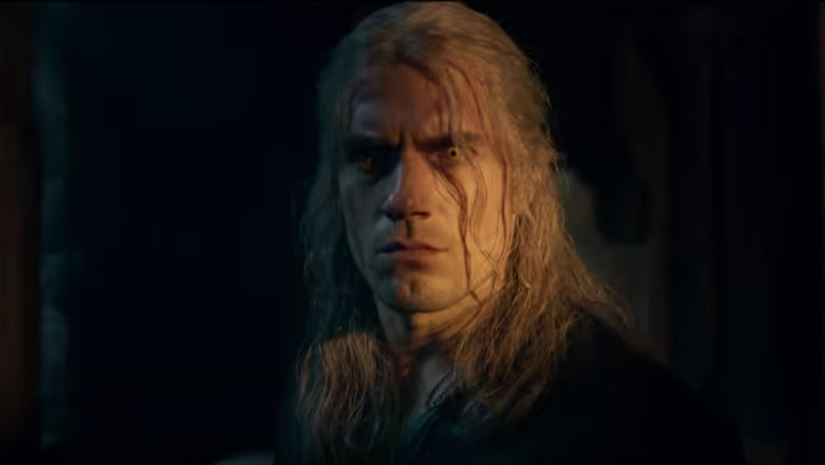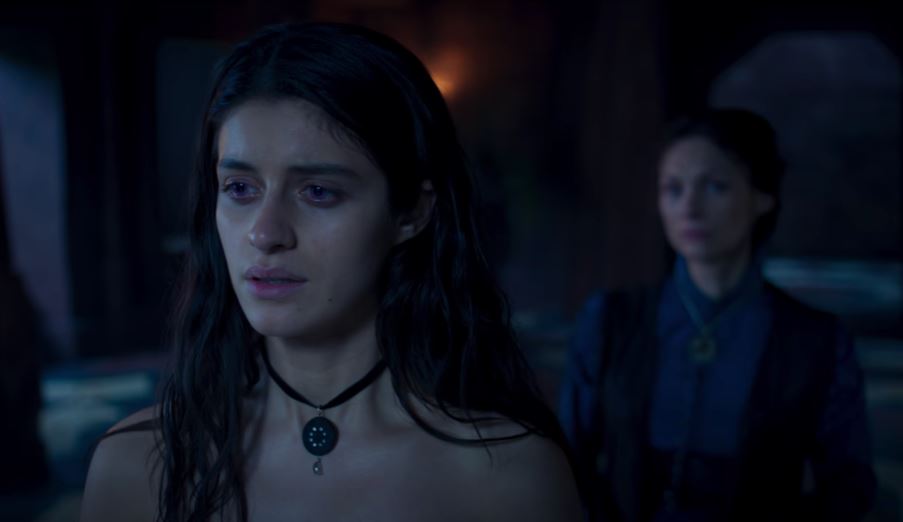The first season of The Witcher was, to say the least inconsistent. Its quality varied wildly from episode to episode, and never in just one way. Sometimes the writing would be spot on, and sometimes it would be awful. Some monsters looked great, and some looked like they were ripped out of the bad old days of mid-2000s CGI. You never knew what you were getting week to week and it made season 1 a frustrating watch.
I can say this much about season 2 of The Witcher, regardless of how anyone will feel about the direction the story goes; it improved immensely in everything the show tried to do in season 1. There is a consistent quality to everything now. The monsters, the characters, the writing, the plotting, it all gels together in that way audiences hoped it would after last season.
The result is a much better show with a clear purpose, one that learned its lessons and took them to heart.

Season 2 picks up literally right from the end of season 1, with the aftermath of the Battle of Sodden. Geralt and Ciri have found each other. Yennefer is picked up by Nilfgaard in the aftermath, who lick their wounds back in Cintra after losing said battle. Everyone reacts to and plans their next move in the aftermath, knowing it is not over.
Then word of Ciri and her power gradually leaks to an increasing amount of parties, and things spiral out of control.
Let’s get this out of the way right now; if you press play on season 2 expecting The Witcher to properly adapt Blood of Elves, then you will be disappointed. There is an original monster villain manipulating basically everything from the background, major changes to major characters, and most of the season consists of original plotlines. The internet is voicing plenty of disappointment about these changes, and I can certainly understand some of it. It would have been cool to see something closer to the book version of this story.
But really, I let go of the idea that Netflix’s Witcher universe would follow the books when Nightmare of the Wolf completely changed the motivations and justifications for the sacking of Kaer Morhen. I adjusted my expectations accordingly. And you know what? I really liked most of what they did this season. It is a drastic spin on a familiar story that at least generally follows the same path, and I can appreciate that.
As you would expect, most of season 2 revolves around Geralt and Ciri. Geralt hides Ciri at Kaer Morhen after Sodden, and they gradually develop their found family bond. This is also, as you would expect, the highlight of the season. Henry Cavill is still absolutely perfect as Geralt. Freya Allen settles nicely into the stubborn, fledgingly-powerful Ciri who struggles with losing her life in Cintra. They are absolutely excellent as they each adjust to the new lives destiny is thrusting upon them.
Yennefer has the most controversial storyline of the season, which sees her lose her power to the big bad monster of the season and left to cope with its absence. Her path eventually leads to her being promised her power back if she brings Ciri to said monster. She betrays Geralt to do so, only to lose her nerve as they near the creature, but her change of heart comes after Geralt catches up to her and rescues Ciri.
If you look at this from an adaptational standpoint, it feels like a betrayal of the bond Yen and Ciri develop at this point in the story, with Yen spending a lot of time helping Ciri learn and control her powers.
As its own thing, I think it worked fine. Yen did not know Ciri. She had no bond and was desperate. We know what power means to Yen and why she seeks it. She also chickens out after, like, a day with Ciri. It sucks that she would betray Geralt like she does but it works for this Yen, and she makes up for it in the end.
If anything, having her powers taken at all is the big crime of the season, and unfortunately fits into criticisms over the suffering Yennefer from season 1.
But in the end, The Witcher rounds its three main characters towards their intended destination, where they find and accept each other and how they help each other replace the things stolen from them. It is not perfect, but I thought season 2 did its job getting these three through their anger and trauma to a point of caring.
They will need all the support they can give each other, because much of the season is spent developing every political faction in the world towards wanting Ciri, as well as establishing future magical threats to come snatch her from any chance of a happy life. Things start off with Nilfgaard alone knowing and wanting Ciri, but by the end of the season everyone does. The elves, the mages, the mages within the mages, the kingdoms of the North, everybody sees a use for her and is seeking her out.
I am curious what others will think, but I found this political maneuvering to be surprisingly strong throughout the season. For all the attention given to witchers and the monsters they hunt, the world of The Witcher is one of political drama. It is one of kings and spies and backroom maneuverings that hapless witchers like Geralt are left to navigate at their own peril.
Season 2 captures this vibe very well. Alliances form and break, spies and assassins work, and they all work to their own ends. I appreciated the number of times where a spy would just be present in the background of a scene without having to explicitly focus on them, and the way power players would gradually reveal themselves. It is not amazing, but it works much better than I thought it would.
And while some disagree, I really like the influence that the big bad monster of the season has on all this, because one of the big mistakes the Witcher books make is letting monsters fall by the wayside. They go heavily political and often forget what exactly it is that witchers do. This antagonist also ties together all the major players, so they all have a connection at the end of the season.
Meanwhile, season 2 also puts in considerable work establishing major players for not just the near-future of the story, but well down the line. Pay attention, because there is a lot here that matters.
(Hint: Philippa matters)

Is it perfect? Of course not. The Witcher continues to struggle to make you care about characters besides Geralt, Ciri, and Yen. Considering how much of the plot revolves around Fringilla, Francesca, Tissaia, and new characters like Dijkstra, there is a lot of content without those three. It is not always the strongest material, and I can see how people will struggle to pay the same attention.
The Witcher also needs to find a way to contextualize its world a bit better. Sure, I can go on Netflix’s website and look at a map, but the show itself should find a way to make clear where countries are, how they connect to each other, what kind of distances we’re talking about, etc. Those kinds of details go a long way in understanding the journeys of the characters and why things are happening. When Ciri and Yennefer ride from the Temple of Mellitele, we have no idea how long that took, which means we have no idea how much time they had to bond.
It also means we have no idea how Geralt could catch up to them in time.
Were these huge problems for me as I watched, though? Not particularly. They are flaws to work on moving forward. Overall, I was impressed by what The Witcher did this season and left optimistic for the future of the series.
There is no question that the worst vitriol towards this show is going to come from fans who are understandably upset about the adaptational choices. I felt the same way last season. I definitely understand what this season would have been better if it had stuck to the book it is based on. That is an argument others can and will make, and I will probably agree with some of it.
The thing is, it is good that The Witcher decided its direction and stuck with it. They knew exactly what show they wanted to make, what changes they wanted to make, and focused on making that show. They knew exactly the story they wanted to tell. Compare that to another Netflix adaptation, the recently released live-action version of Cowboy Bebop, which had no idea what it wanted to be and struggled immensely for it. The Witcher avoided that type of waffling.
If you go in without expectations of seeing the book on screen, what’s left is a pretty solid season of television that improved considerably on the one before.
Images Courtesy of Netflix
Have strong thoughts about this piece you need to share? Or maybe there’s something else on your mind you’re wanting to talk about with fellow Fandomentals? Head on over to our Community server to join in the conversation!

